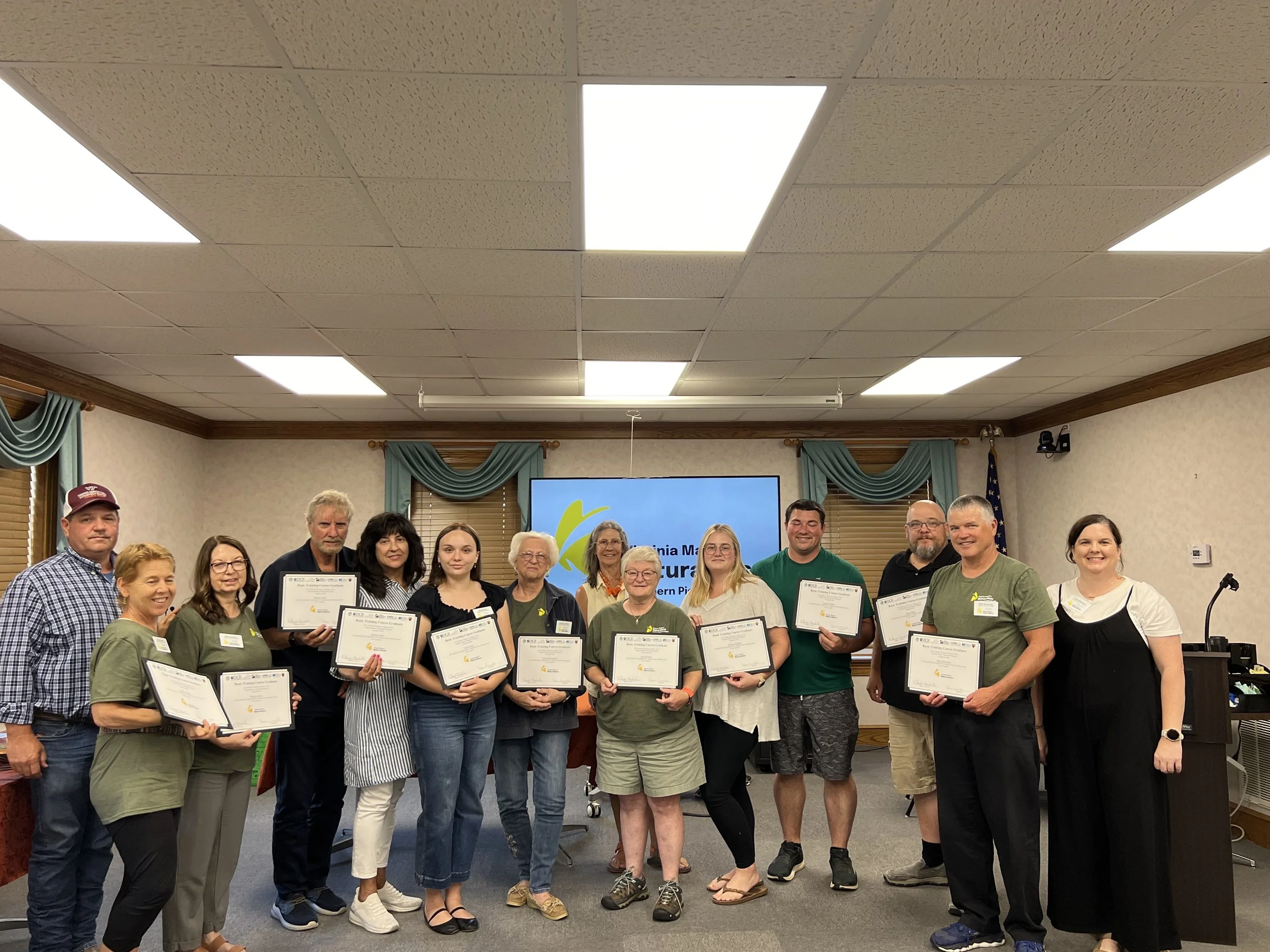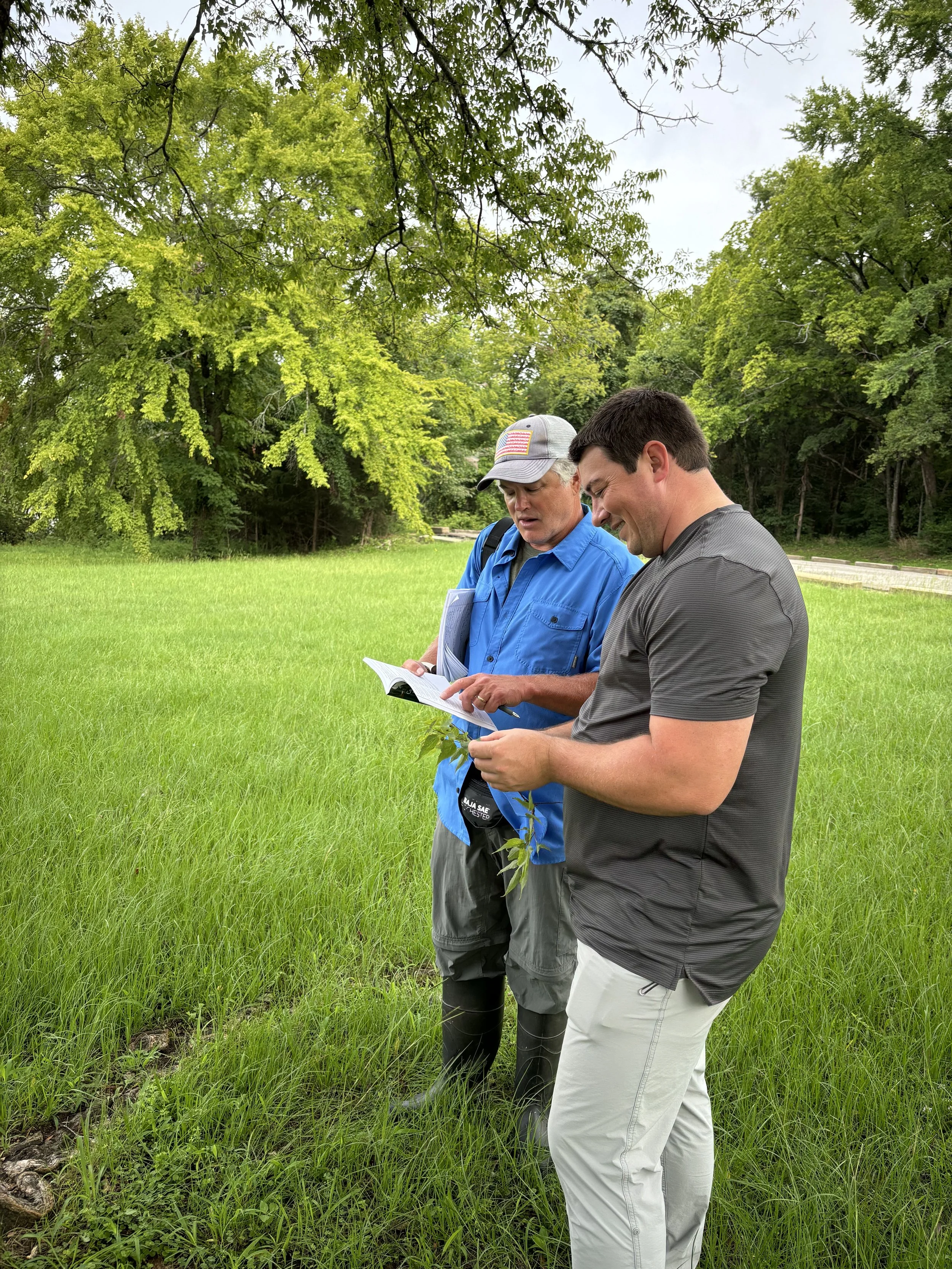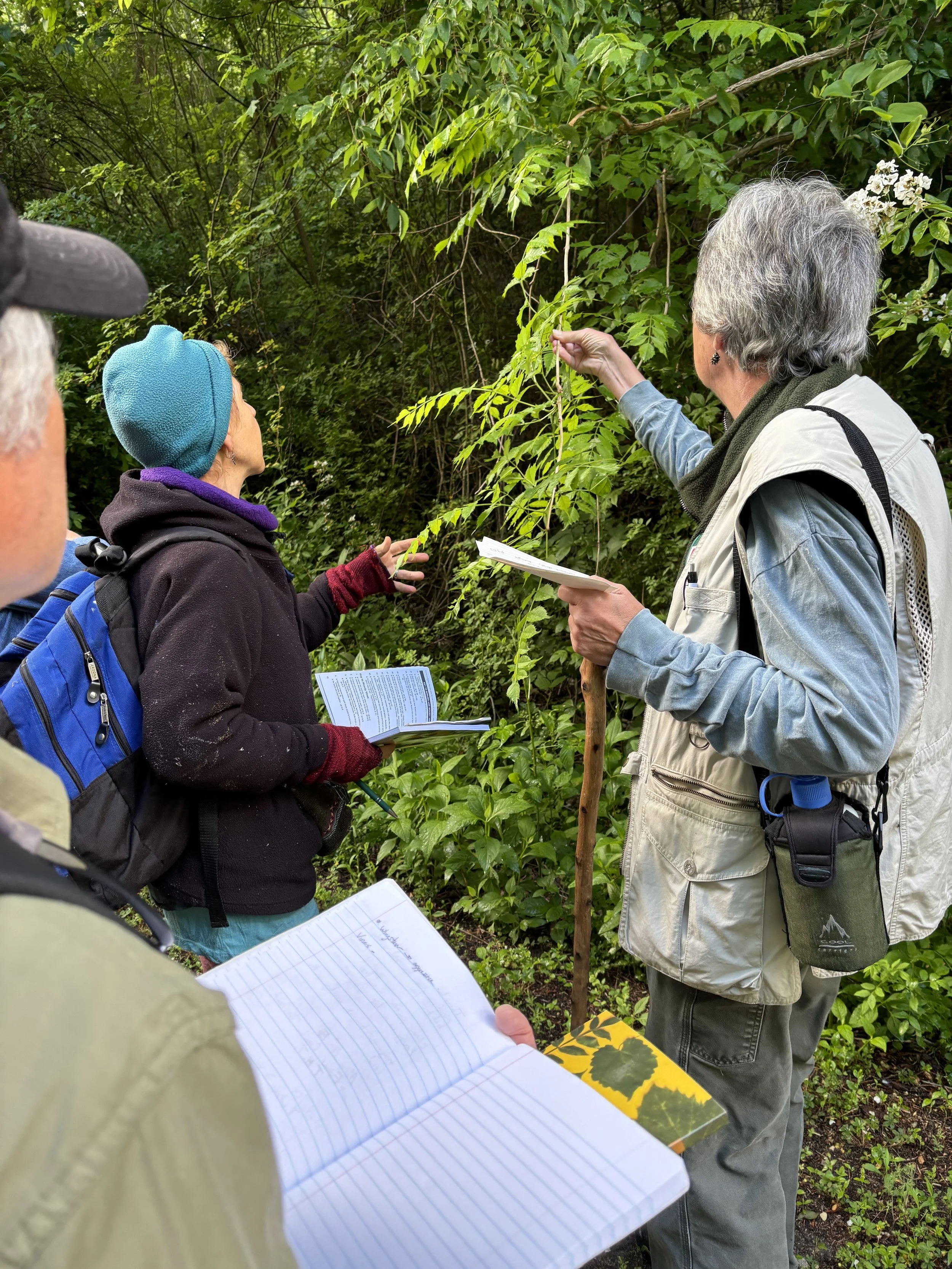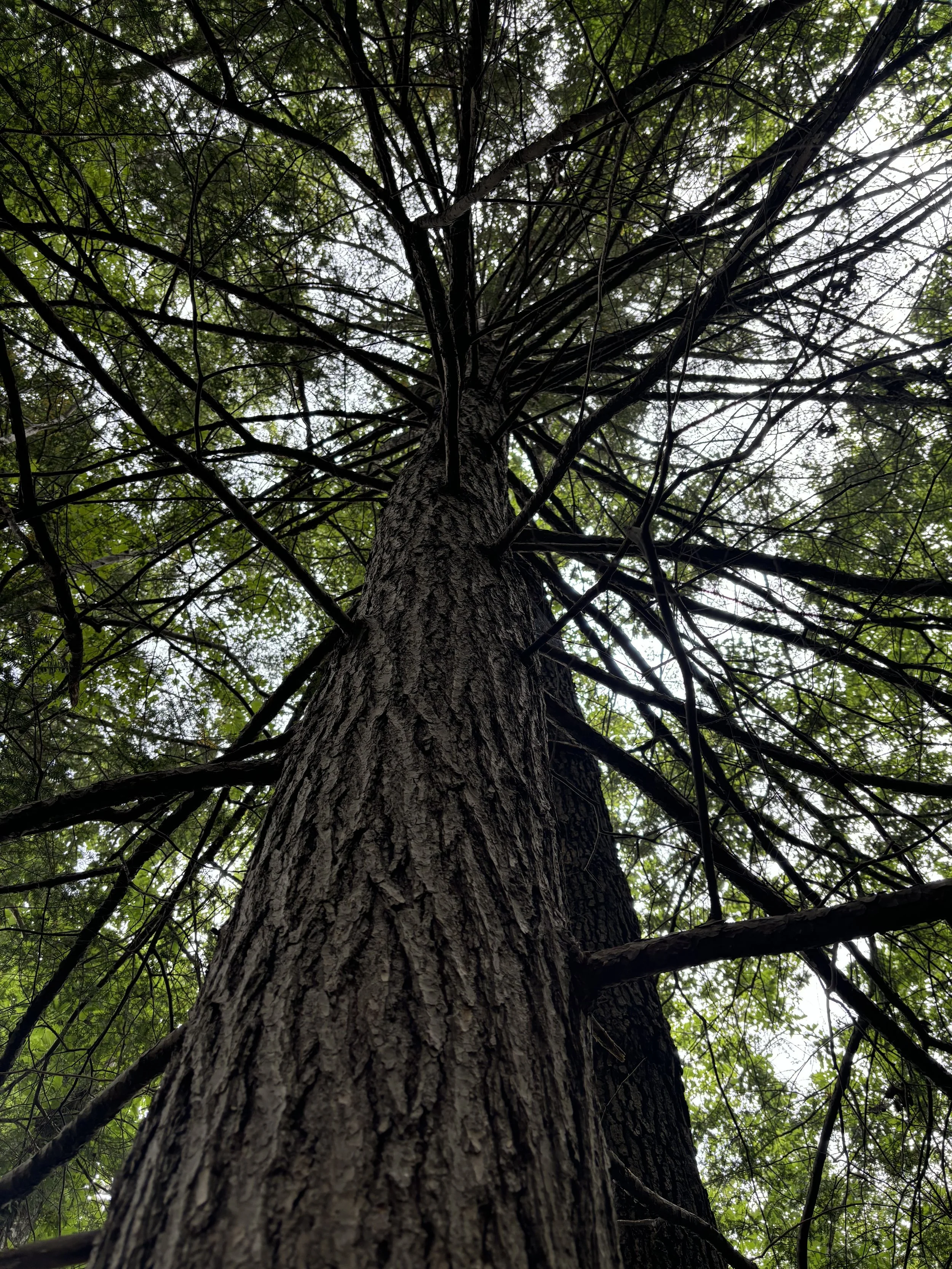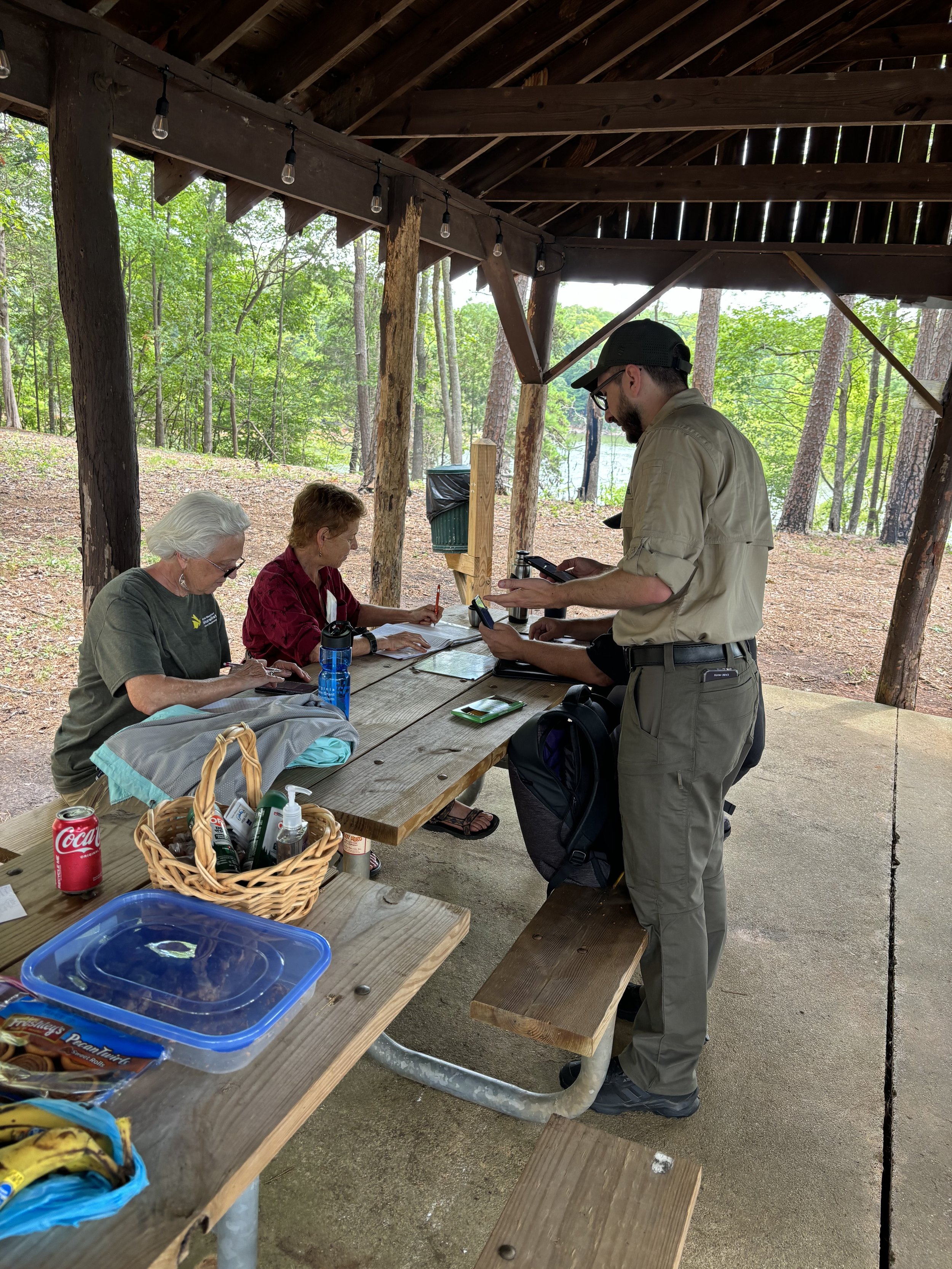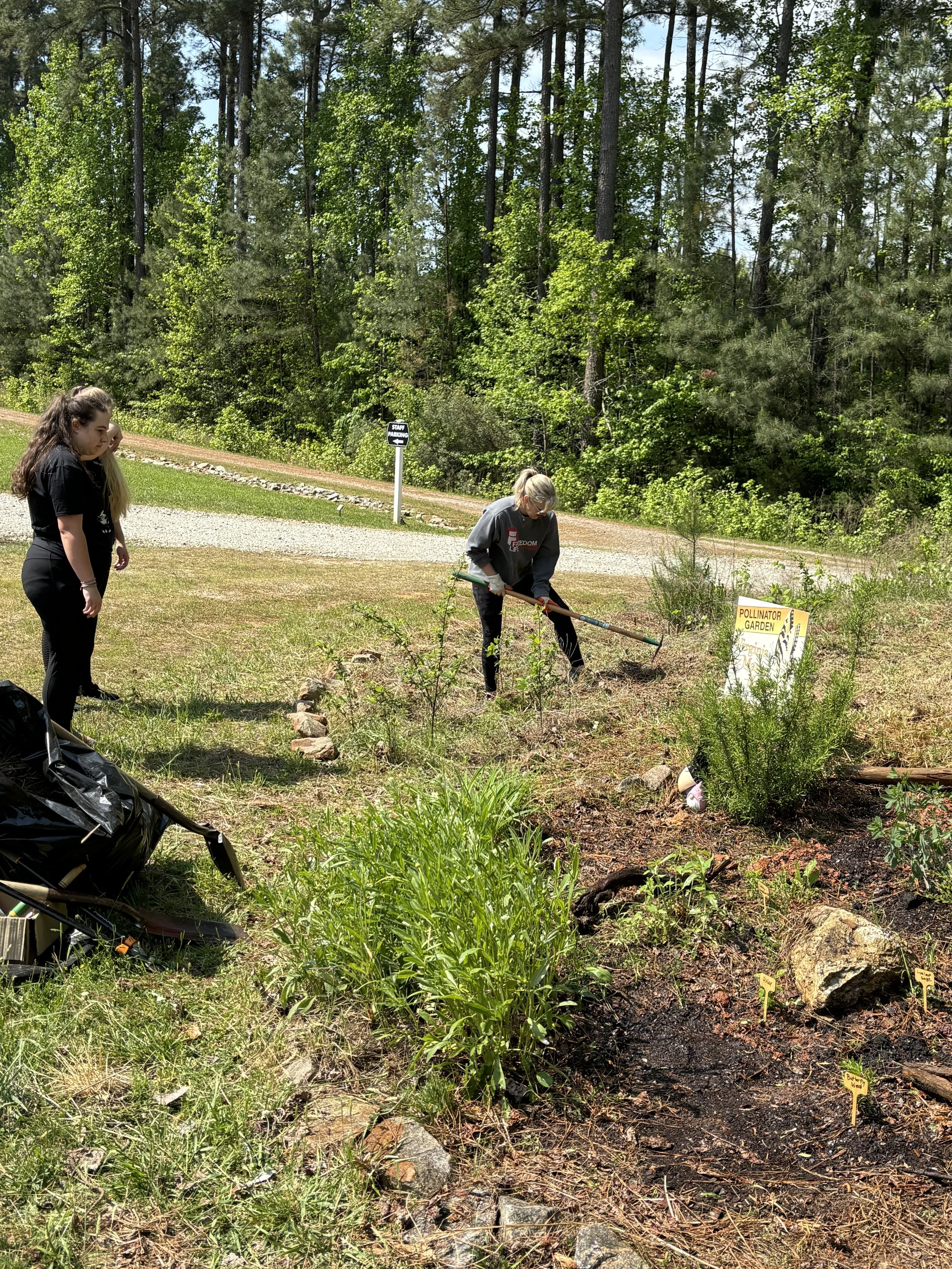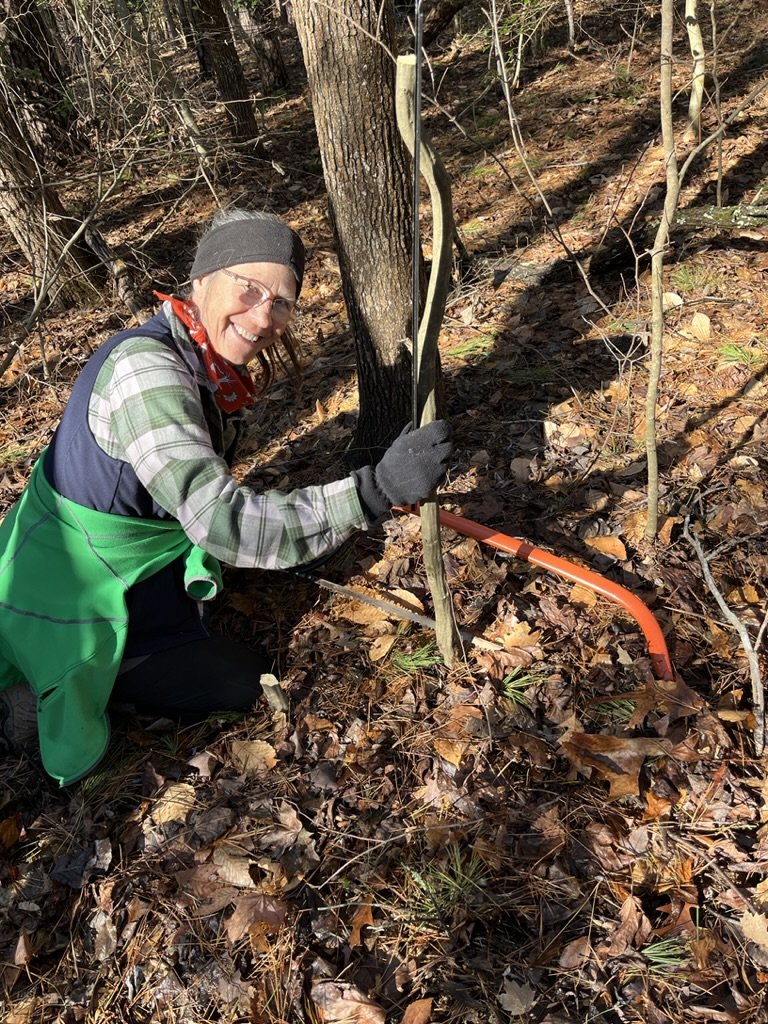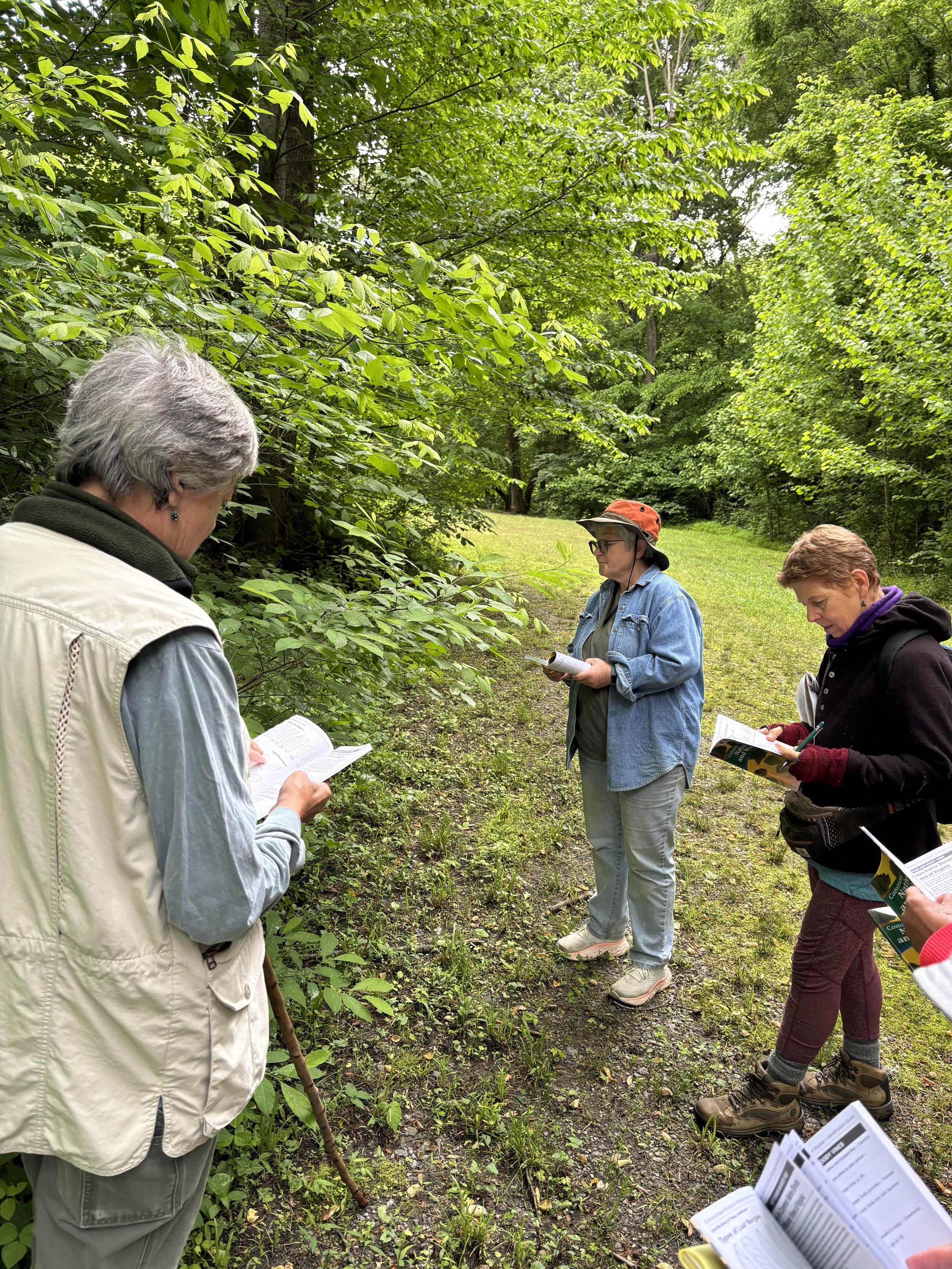
Basic Training
In a year or less, you will: Collect a firm understanding of natural sciences in the context of Virginia’s ecological systems, deepen strong foundational knowledge through continuing education and experience, then extend that knowledge to the community through volunteer service.
People who are curious about nature, enjoy the outdoors, and want to be a part of natural resource management and conservation in Virginia are perfect candidates to become Virginia Master Naturalists.
Want to become a Virginia Master Naturalist?
The program is open to all adults regardless of age, color, disability, gender, gender identity, gender expression, national origin, political affiliation, race, religion, sexual orientation, genetic information, veteran status, or any other basis protected by law. Youth 14-17 participating with a parent may be accepted under some circumstances.
What is a Master Naturalist?
It is a program that cultivates volunteers by providing training to get the participants started, and then helping them find opportunities to use their knowledge and skills to benefit Virginia’s natural resources. It is a program that’s about community partnerships. Our Virginia Master Naturalist chapters become a way for many partners involved in natural resource education and conservation to work together to cultivate and engage a group of motivated and trained volunteers. The program was launched in 2006, and continues to grow!
What is our mission?
Our official mission is to be a statewide corps of volunteers providing education, outreach, and service dedicated to the beneficial management of natural resources and natural areas within their communities.
How do I become a Master Naturalist?
The process of becoming a Certified Virginia Master Naturalist begins with enrolling in and graduating from one of the basic training courses offered by our chapters. Eight additional hours of advanced training are required. The biggest focus for the program is the volunteer service (a minimum of 40 hours). Both the 8 hours of advanced training and the 40 hours of volunteer service must be completed annually to maintain certification.
Applications for our Chapter open in December and close January 31.
What is the required training class?
Each chapter sets its own schedule and syllabus for the basic training course. The course is tailored to the local environment, local instructors, and local natural resources. Wherever you are in the state, however, there are some core objectives that are the same across all chapters:
● Mission, objectives, and guidelines of the program● Significance of naturalists and natural history ● Biogeography of Virginia● Ecology (basic concepts)● Geology (basic concepts)● Resource management (basic principles)● Some native flora and fauna in the region ● Process of science● Roles of Virginia state agencies in the management and conservation of natural resourcesWe also expect that, no matter the chapter, Master Naturalists will have these core skills that they can apply to their volunteer service:
• Use a key to identify organisms• Use a field guide• Share knowledge with others • Make and record observations in nature• Recognize when he or she does not know the answer to a question, but be able to seek out answers from people, books, or other reliable resources.Example of Basic Training Schedule

What is advanced training?
The basic training course is very broad and doesn’t have time to go very deep. Advanced training is an opportunity for volunteers to dig deeper into the subject matter and develop specific skills needed for their service projects. This type pf training builds on the core curriculum initially provided by promoting continued learning and development of naturalist skills. It also provides knowledge and skills necessary to work in local volunteer efforts.
Here are a few examples of advanced training topics:
• Short courses and workshops offered by state or local partners on specialized topics such as forest management, water quality monitoring, or public speaking skills
• Training for invasive plant identification or Wildlife Mapping
• Public lectures on natural history topics if they meet the advanced training objectives and pertain to local natural resources
How do I volunteer?
Whether they prefer digging in the dirt, sharing the wonders of nature with youth, or collecting data to help monitor the health of our wildlife populations, Virginia Master Naturalists can find a volunteer project that fits their interests and skills. Virginia Master Naturalists volunteer for three types of projects: education, citizen science, and stewardship. Each chapter works with state and local partners to offer a mix of these project types. All volunteer work must be performed under a chapter-approved project.
All projects must meet the following criteria:
• Must be dedicated to the beneficial management of the natural resources within the local community
• Must be for public benefit, not personal gain
• May be a series of short, unrelated experiences, a long-term commitment to single project, or a mix
• Can be conducted independently or as a team
• Can be part of an existing partner project, a new project developed by the volunteer, or a class project
If you have an idea for a volunteer effort, but your chapter does not have an approved project, don’t worry—you can create a new project whenever you’d like (with chapter approval)!
What can I do to get volunteer hours?
Administrative: you can get volunteer hours by helping out in your chapter administration. Here are some examples:
• planning and supervising VMN training classes,
• serving as a board or committee member,
• working on a chapter newsletter,
• communication efforts,
• other activities that support the effectiveness of the chapter and statewide program
Education: If you enjoy public speaking or perhaps working with youth, look for education-based projects such as:
• Being a volunteer interpreter at a state or local park
• Developing an interpretive trail
• Being a guest presenter on a natural resource topic in a classroom
Citizen Science: If you want to contribute to the scientific community. Consider a citizen science project! Examples are:
• Recording data for the VA Wildlife Mapping program, or a local BioBlitz
• Participating in a Christmas Bird Count
• Conducting water quality monitoring
• Organizing biodiversity inventory of a local park
Stewardship: For volunteers who want to get their hands dirty!
• Maintaining trails at a state park
• Pulling out exotic invasive plants and planting natives at a nature center
• Restoring bird-friendly habitat at a local park

